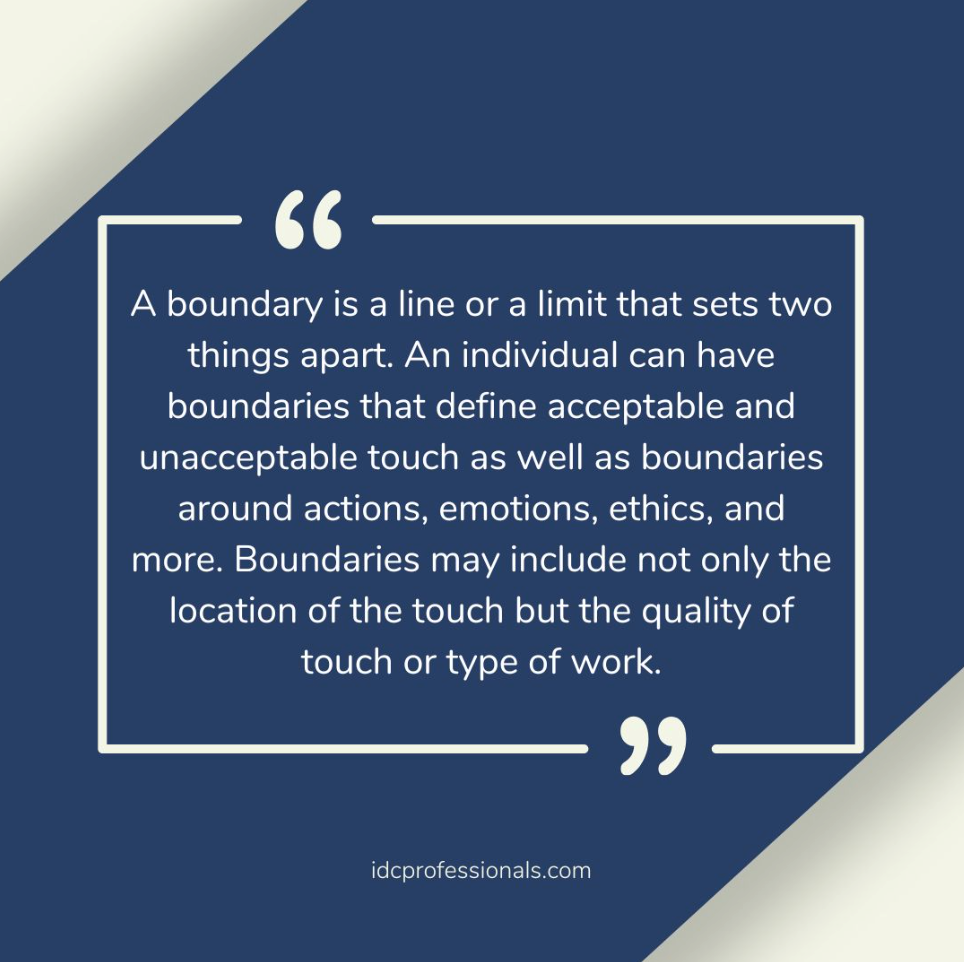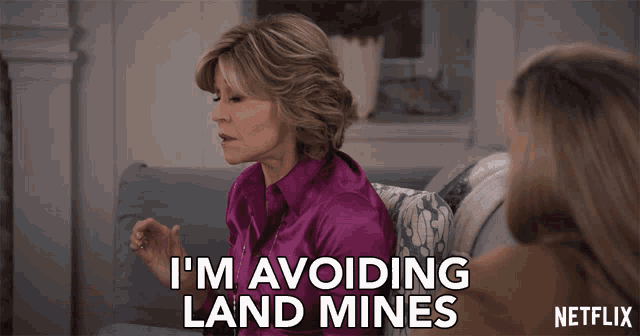Thank You for Taking Care of Yourself
Unapologetically and clearly sharing a boundary is a vulnerable act. There are a million “what if” anxieties and fears members of the entertainment industry have expressed to me around setting boundaries. What if I hurt their feelings or they feel rejected? What if they think I’m difficult to work with and don’t want to work with me in the future? What if my boundary ruins their vision for the show? What if I disappoint them? What if this causes conflict? What if I don’t say “yes, and…”? What if, what if, what if? These aren’t just phantom fears. They come from real systemic issues within the entertainment industry, the effects of which are felt disproportionately more by people from marginalized communities. In short, stating a boundary is hard for most people and can be outright dangerous for many.
As artistic community members, it is our responsibility to make space for people to state their boundaries and demonstrate that we will respect them. Most folks want their collaborators to be safe and confident. No one* wants to be the one who causes harm by crossing a boundary they didn’t even know existed.
When someone who is scared to state their boundary, or doesn’t know their boundary, collides with someone who is unclear about how communication about boundaries works, they usually end up with a vast amorphous gray area where both collaborators are effectively stumbling around blind trying to work together without knowing what is actually safe in that working relationship. The fog of uncertainty causes everyone to walk on eggshells, slows the work down, and erodes trust.
Enter the power of gratitude. As the person receiving someone else’s boundary, you have the power to reassure your collaborators that you are genuinely interested in their boundaries and wellbeing by thanking them for sharing a boundary or a need with you, and then respecting that boundary or finding a way to meet that need. This is an especially important and impactful communication tool if you hold a lot of positional power in a space. It can start off small. For example:
Collaborator A: “Can you grab my arm here instead of here?”
Collaborator B: “Thanks for taking care of yourself and letting me know. I can make that adjustment.”
Collaborator A stated a need, and Collaborator B responded first with gratitude followed by making the necessary adjustment. Collaborator B could have just responded by saying “I can make that adjustment.” This is a fine way to respect their partner’s boundary and move the work along, BUT by taking the extra moment to express gratitude for Collaborator A’s communication about their needs, they have positively reinforced their partner for speaking up and invited future boundaries to be shared with them. How you respond to the little asks builds trust and opens the door for more vulnerable asks in the future because they know you are grateful to receive that information.
When someone shares a boundary with you, asks for help, or asks for something they need in the working relationship treat it like a gift. That information they just shared with you is a ray of light inside the fog of uncertainty which points to exactly where a potential land mine sits and how you can best avoid it.
Using gratitude to graciously respect someone telling you “No” isn’t a panacea for all the hurdles someone might be struggling with when trying to communicate their boundaries. However it can start to open up the space for future dialogue. Over time it could be the seed that blossoms into a trusting and fruitful working relationship. AND it can be the first important step in modeling respectful relationships for others who may not have the same experiences.
On the flip side, if you have a boundary or need and you have the privilege of being in a position where you are safe and encouraged to state it, please do! Model that for others. This way you begin the groundwork with people in power for others, who may not be as free to state their boundaries, to be given the opportunity to do so. You’ll learn a lot by how people respond, and when you find folks who respond with support and gratitude you’ll have found the beginnings of a trusting and productive working relationship and ensemble.
Journal about it or comment below!
What’s a boundary that you’ve established that has made your working relationships more fruitful? How was it to share that boundary for the first time?
Do you remember the first time someone shared their boundaries with you? How did you respond?
Have you thanked a partner for sharing their boundaries or been thanked for sharing yours? How did that feel?
How and where can you model stating boundaries for others that’ll help them in the future?
-Marie Percy, Chief Content Officer
*It's important to note that this is true for the majority of people. However there are rare people who won’t or can’t respect a boundary. Dealing with someone who cannot or will not respect a boundary is another topic entirely. Let us know if you’d like to see a blog post on that in the comments section.





